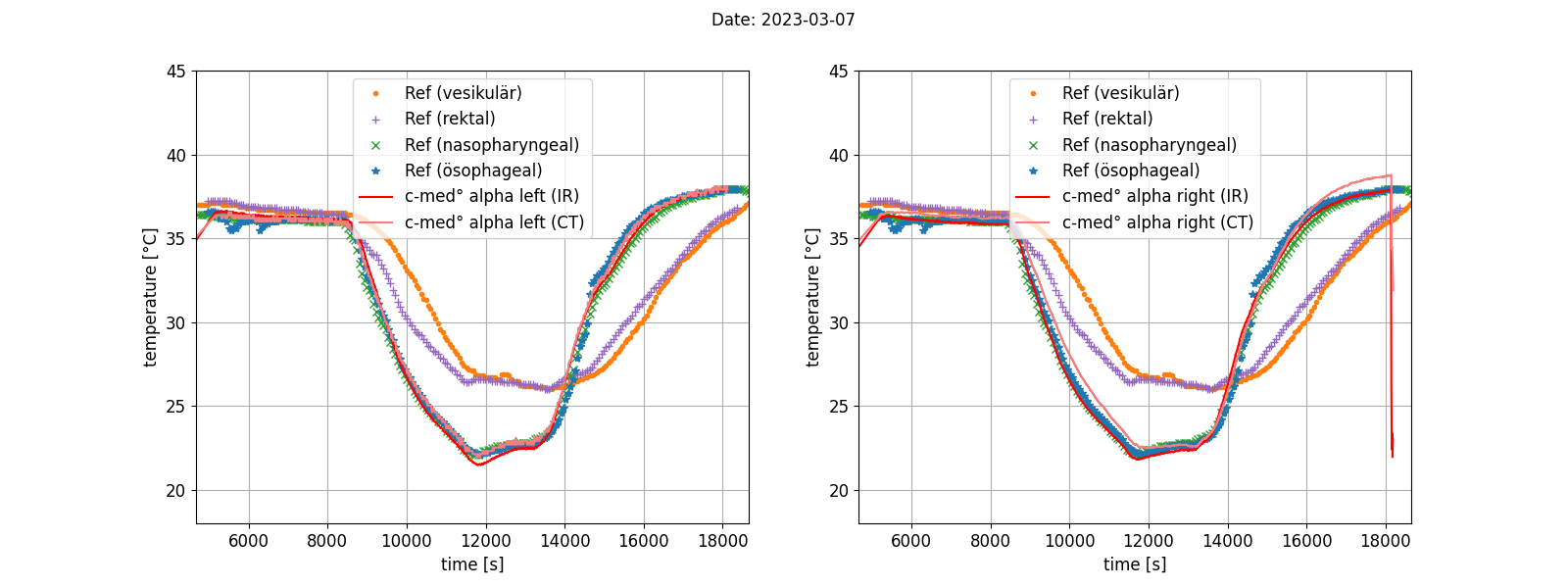
At the University Hospital of Munich in Großhadern, a validation study for core body temperature measurements of the c-med° alpha against clinical gold standard temperature probes was conducted. During heart surgery, patients were continuously monitored with the in-ear sensor c-med° alpha in both ears and with four additional temperature probes: nasopharyngeal, vesical, esophageal and rectal. For the duration of the surgery, patients were cooled down to as low as 22°C and rewarmed again to normal body temperature. The temperature data recorded by the probes and the c-med° alpha throughout the entire process was subsequently compared.

Fig. 1: Visualization of the measured data of the c-med° alpha and the reference devices.
The results demonstrate that the c-med° alpha can accurately track core body temperature not only at near normal body temperature ranges but also in a therapeutic hypothermia setting (see fig. 1). A high agreement was found between the standard temperature measurement (esophageal) and the in-ear measurement with the c-med° alpha (epitympanic). In addition, the authors discuss the possibility of estimating brain temperature based on the in-ear measurements due to the common blood supply through the carotid arteries and the proximity of the two body parts. The results of the study were published in Scientific Reports (Langenhorst et al. 2024).


